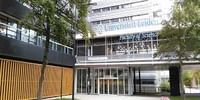Applied physics involves studying not only how phenomena come about, but also how to use them for technical solutions. The Applied Physics programme from University of Groningen?focuses on theory and practice.
Critical appraisal skills
Applied physics is an academic subject, which means that you acquire not only knowledge, but also skills such as presentation, working in a team and setting up and conducting research. We teach you critical appraisal skills, which you will learn to apply to your own and other's work.
Tough subject
Applied physics can certainly be described as a 'tough' subject. Obviously, in order to study it you need to have an affinity for sciences, but you don't need to be at the top of the class. However, you do need to have an enquiring and creative mind that wonders how things work.
Job prospects
Applied Physics is a broad Bachelor's programme, after which you can specialize with a Master's degree programme. You can then continue in the academic world or opt for a career in the business world. Many applied physics graduates find work developing new products.
Business
Many applied physics graduates choose a job in industry, contributing to technical innovations and product development. In the SME sector, consultancy and engineering firms are also increasingly looking for applied physicists.
Research and advising
When you have your Master's degree you can carry out PhD research at a university. You could also work for a research institute such as TNO (Netherlands Organization for Applied Scientific Research) or the NLR (National Aerospace Laboratory of the Netherlands).
Not quite the same as technology
Applied physicists, like 'ordinary' physicists, are sought after by large organizations such as banks and insurance companies, which value their analytical skills. Management consultancy firms frequently recruit applied physicists too.
Job examples
- Consultant
- Researcher
- Technical innovator
- Analist













